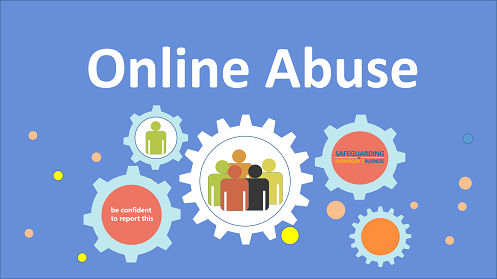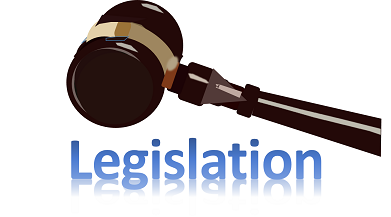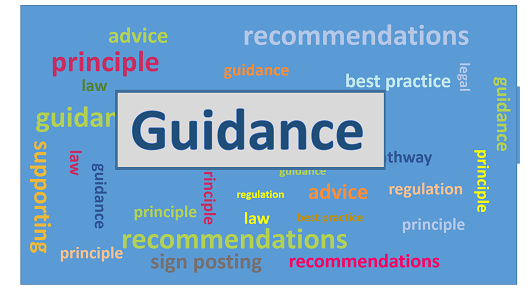Safeguarding News June 2023
Welcome to the latest SAFEcic newsletter covering news from June 2023.
Carers Week was held 5 – 11 June 2023.
This year the theme was 'Recognising and supporting carers in the community'. Carers Week wants communities across the UK to come together to recognise the huge contribution unpaid carers make to society. Politicians, employers, health and social services, businesses, education providers and members of the public all have a role to play in raising awareness of caring and making sure carers are able to access the information and support they need.
Child Safety Week was also held 5 – 11 June 2023.
Child Safety Week is the Child Accident Prevention Trust’s annual community education campaign, acting as a catalyst for thousands of safety conversations and activities UK-wide. The aim is to help families build confidence and skills in managing the real risks to children’s safety, and all children to have the freedom to grow and learn, safe from serious harm.
Our latest training schedule is listed below and feel free to share this email with your colleagues and they too can join our newsletter database.
To sign up simply click here.
Services Update
SAFEcic is also accepting many more bookings for its Rapid Review Service, its face to face safeguarding training and audit services. There is also a packed calendar of blended learning events available to book for your organisation. The courses are a very cost effective way of training your staff and volunteers.
SAFEcic Blended Learning Training Calendar
Leading on Child and Adult Safeguarding
Safeguarding Training, Leading on Child and Adult. Online course plus Zoom
Wed 9 August 2023
10:30 - 12:00 GMT
Safeguarding Training, Leading on Child and Adult. Online course plus Zoom
Wed 20 September 2023
10:30 - 12:00 GMT
Safeguarding Training, Leading on Child and Adult. Online course plus Zoom
Wed 10 October 2023
10:30 - 12:00 GMT
Safeguarding Training, Leading on Child and Adult. Online course plus Zoom
Wed 22 November 2023
10:30 - 12:00 GMT
Safeguarding Training, Leading on Child and Adult. Online course plus Zoom
Tue 12 December 2023
10:30 - 12:00 GMT
Standard Child and Adult Safeguarding
Safeguarding Training, Standard Child and Adult. Online Course plus Zoom
Mon 18 September 2023
10:30 - 12:00 GMT
Safeguarding Training, Standard Child and Adult. Online Course plus Zoom
Thu 30 November 2023
10:30 - 12:00 GMT
Safeguarding: Trustees’ legal responsibilities
Safeguarding: Trustees' legal responsibilities. Online Course plus Zoom
Thu 21 September 2023
10:00 - 11:30 GMT
Safeguarding: Trustees' legal responsibilities. Online Course plus Zoom
Tue 21 November 2023
10:00 - 11:30 GMT
Safer Recruitment Training. Online course plus 2 Hr Live Online training
Tue 19 September 2023
10:00 - 12:00 GMT
Safer Recruitment Training. Online course plus 2 Hr Live Online training
Wed 1 November 2023
10:00 - 12:00 GMT
Safer Recruitment Training. Online course plus 2 Hr Live Online training
Thu 7 December 2023
10:00 - 12:00 GMT
SAFEcic's free hub resources by setting are available through the SAFEcic.co.uk main menu. Alternately you can bookmark the links below:
Education | Dental | Charities | GP & Primary Medical Services | Fath Groups | Entertainment & Leisure | Working Overseas |
Legislation
1. The Child Support Collection (Domestic Abuse) Act 2023
The Child Support Collection (Domestic Abuse) Act 2023 will ensure victims of domestic abuse in England, Scotland and Wales can receive child maintenance without contact from their abuser has received Royal Assent on Thursday, 29 June 2023. It will allow the Child Maintenance Service (CMS) to intervene in cases where abuse is evident, using its powers to collect and make payments. This set-up, called Collect and Pay, is already used by 37% of parents using the CMS. It provides extra protections for parents who have experienced domestic abuse by managing payments and avoiding the need for contact - preventing perpetrators from inflicting financial abuse and control. The new law follows an independent review into the CMS’s support for victims and will build on the CMS’s existing procedures to protect both paying and receiving parents who are vulnerable to domestic abuse, ensuring more children in separated families are supported.
2. The Child Support (Enforcement) Bill
The Chiid Support (Enforecement) Bill will soon become law and will simplify the court process of recouping child maintenance arrears, while continuing to protect paying parents’ appeal rights. This change in this Bill will make it easier and quicker for the CMS to take enforcement action and recoup money owed to families. Together, these changes will significantly strengthen the CMS’s existing support for vulnerable families. ## Contact Press Office
3. Important update to The Police Act 1997 (Criminal Record Certificates: Relevant Matter) (Amendment) (England and Wales) Order 2023)
The draft Order has been laid before Parliament under section 113A(8) of the Police Act 1997, for approval by resolution of each House of Parliament. An amendment will bring the Act into line with self-disclosure rules and make it clear that cautions and convictions cannot become filtered unless/until they become spent.
Dominic Headley & Associates advise: “This amendment will fundamentally alter the application of the DBS filtering rules which are tremendously complex and widely misunderstood by most individuals and most organisations. To help navigate them correctly, you can use the flowchart that Headley Associates have developed. When applying for roles subject to Standard and Enhanced DBS checks, applicants should be asked BOTH the following questions:
- Do you have any unspent conditional cautions or convictions under the Rehabilitation of Offenders Act 1974? (Y/N)?
- Do you have any adult cautions (simple or conditional) or spent convictions that are not protected as defined by the Rehabilitation of Offenders Act 1974 (Exceptions) Order 1975 (Amendment) (England and Wales) Order 2020? (Y/N)?”
4. The Domestic Abuse (Jersey) Law 2022 came into force on Wednesday 21 June 2023.
The Minister for Home Affairs has brought to the States Assembly an Appointed Day Act, which brings into force the Domestic Abuse (Jersey) Law 2022, which was approved by Members on 28 April 2022, creating a new legal framework for addressing domestic abuse in Jersey.The three key elements of the legislation are the domestic abuse offence itself, the new powers for the courts to impose Domestic Abuse Protection Orders (DAPOs), and to impose notification requirements on people convicted of domestic abuse or similar offences. It will allow a court to treat the involvement of a child as an aggravating factor in relation to sentencing. This is intended as a mechanism for risk prevention, following the same structure as the Sex Offenders Law, and the court may order such a person to provide police with relevant details or any relevant changes, for a specified time. It provides a definition of abusive behaviour which occurs when someone commits an offence which involves physical or sexual abuse, violence, threats, harassment or neglect. Coercive or controlling behaviour is also defined as domestic abuse.
Domestic abuse will be an offence where both parties are personally connected, they are aged 16 or over and on more than one occasion one person is abusive to another. The law strengthens protection for survivors and creates the new offence of domestic abuse with a penalty of up to five years imprisonment and an unlimited fine. It also includes acts committed outside of Jersey if the offender is usually resident in Jersey. Jersey Courts will be able to issue DAPOs if there is a risk to the same victim of further abuse and will consider the wellbeing of any children involved.
5. The Data Protection and Digital Information (No. 2) Bill: Commons stage (Research Briefing)
This Bill has been written by John Woodhouse and the Data Protection and Digital Information (No. 2) Bill [Bill 265 2022-23] was introduced in the House of Commons on 8 March 2023. Much of the Bill is the same as the Data Protection and Digital Information Bill [Bill 143 2022-23] which was introduced in the Commons on 18 July 2022. The Bill was scheduled to have its second reading on 5 September 2022. A Library Briefing on the Bill (PDF) (31 August 2022) was published for the debate. However, in a Business Statement on 5 September 2022, the Government said that, following the election of Elizabeth Truss as Conservative Party leader, second reading would not take place. This was to allow Ministers to consider the Bill further. The Bill was withdrawn on 8 March 2023
In a Written Ministerial Statement of 8 March 2023, Michelle Donelan, Secretary of State for Science, Innovation and Technology, said the new Bill followed a detailed codesign process with industry, business, privacy and consumer groups. The Bill would seize the post-Brexit opportunity to “create a new UK data rights regime tailor-made for our needs”. It would reduce burdens on businesses and researchers and would boost the economy by £4.7 billion over the next decade.
Guidance
Good Practice Guidance
Updated Keeping Children Safe in Education has been published to come into force from September 1 2023
Changes include:
Filtering and monitoring standards in relation to what children access via their school devices and own devices.
- New text has been added to raise awareness of the existing expectation for relevant staff to understand filtering and monitoring. Text has been added to make clear staff training should include understanding roles and responsibilities in relation to filtering and monitoring
- Added new section referencing the new published filtering and monitoring standards. The standards are to support schools meet their duty to have appropriate/effective filtering and monitoring systems in place. Whilst this is not new there is now a requirement to have written standards and filtering and monitoring systems in place.
Out of school settings
- Guidance added about organisations use of school premises with the aim to think about safeguarding when renting out premises.
- Distinction has been made between children missing and children absent from education
Part III
- Clarification that it is good practice for schools to inform shortlisted candidates that online searches will be carried out.
- Clarification has been made that social media checks and online checks are not the same and need all names known not just current.
- Clarification made that there is no requirement to add online search results to Single Central Record.
Inquiry and Review Reports

Safe Care at Home Review June 2023
Led by the Home Office and Department of Health and Social Care this review examines the the protections and support for adults abused, or at risk of abuse, in their own home by people providing their care. The review drew on the experience of people who receive care in their own homes, organisations representing carers, and statutory agencies including frontline professionals. The review developed a set of cross-government actions for implementing change over 3 key themes:
- Strengthening accountability and oversight mechanisms to better protect and support victims.
- Strengthening training and guidance so this type of harm and relevant legislative protections are better understood by frontline professionals.
- Improving the data and evidence available about this type of harm.
Research Reports, Consultations and Studies

Three open consultations have been opened: ‘Information sharing advice for safeguarding practitioners’ and ‘Improving support for children missing education.’
Source: Department for Education published on this website Friday 23 June 2023.
Working Together to Safeguard Children: changes to statutory guidance.
Working Together to Safeguard Children is the multi-agency statutory guidance that sets out expectations for the system that provides help, support and protection for children and their families. Working Together applies at every level from senior leaders to those in direct practice with families, and across all agencies and organisations that come into contact with children. It gives practitioners clarity about what is required of them individually and how they need to work in partnership with each other to deliver effective services. It was last revised in 2018, with a limited factual update in 2020.
In February 2023, the government published Stable Homes, Built on Love, which set out an ambitious plan to transform children’s social care, committing to support every child to grow up in a safe, stable and loving home. Updating Working Together is central to delivering on the first phase of this transformation journey, implementing strengthened multi-agency working across the whole system of help, support and protection for children and their families, re-balancing the system towards help at an early point, and ensuring strong, effective and consistent child protection practice. People are encouraged to read the consultation document before responding to the corresponding questions in the survey. Children and young people are also encouraged to consider the questions in the children and young people’s guide. The consultation finishes on September 6 2023
This consultation, closing on September 6 2023, seeks views on a revision to non-statutory guidance: Information sharing advice for practitioners providing safeguarding services to children, young people, parents and carers (“Information Sharing Advice”) which:
- outlines the responsibilities of agencies and organisations and the golden rules to promote effective information sharing;
- summarises the key responsibilities of professionals who share and process personal information and/or have responsibility for deciding how to process it; and
- explains the lawful bases that may be most appropriate for sharing personal information in a safeguarding context.
The Department of Education is asking for views on the revised Information Sharing Advice to ensure that it provides more clarity, is easily understood, and instils confidence to share information appropriately amongst practitioners
Improving support for children missing education
The Department of Education are seeking evidence to improve the way children missing education are identified and supported and also want to empower local authorities, schools and others to identify and support children missing education more effectively. This is to ensure every child gets an education, wherever they live and whatever their background. Children missing education are children of compulsory school age who are not registered pupils at a school and are not receiving suitable education otherwise.
In this call for evidence, views are asked for on:
- how children missing education are identified and supported
- the challenges in identifying and supporting children missing education
- how to address those challenges
This consultation ends July 20 2023.
Regulatory Bodies

1. Ofsted Changes made to school inspections
Changes to inspection processes, a revised complaints procedure and new wellbeing investment from government, are part of a package of measures being announced following a wide-ranging debate about the impact of school inspections. Revisions to school inspections will see inspectors return more quickly to schools graded inadequate where this is only due to ineffective safeguarding, and proposed changes to Ofsted’s complaints process will increase transparency and make it easier for schools to raise concerns. The Department for Education (DfE) already funds the charity Education Support, to provide wellbeing help for school leaders, and that programme will now be doubled in size to support an additional 500 heads by March 2024. In the longer term, the DfE commits to further expand its mental health and wellbeing offer beyond March 2024.
Inspectors will now return more quickly to schools graded inadequate overall due to ineffective safeguarding, but where all other judgements were good or better.
Ofsted will return within 3 months of an inspection report being published, and parents will be informed of this intention in the report. If the school has been able to resolve the safeguarding concerns it is likely to see its overall grade improve.
From September, Ofsted will offer schools greater clarity about the threshold for effective versus ineffective safeguarding through our inspection handbook, as well as regular blogs and webinars. Ofsted will also describe ineffective safeguarding more clearly in inspection reports, to help reassure parents and others that these judgements are not made lightly.
Ofsted has launched a formal consultation on significant changes to the complaints system, aimed at resolving complaints more quickly through improved dialogue between Ofsted and providers, reducing the administrative burden on those making a complaint, and increasing transparency in the process.
As set out in ‘When will my school be inspected?’ blog post, published June 12 2023, Ofsted are giving schools more information about the broad timing of their next inspection. Schools will still get one day’s notice of an inspection, but the blog gives more clarity about the year they are likely to be inspected. This will be particularly helpful for schools that have been exempt from inspection for many years. Ofsted are also continuing to engage with all outstanding schools that were last inspected before September 2015 through face-to-face seminars with inspectors. Inspectors will be clear that it is up to a headteacher to decide which colleagues, or others, they share their inspection outcome with – being aware that judgements are provisional until the report is finalised. Provisional outcomes can sometimes change and shouldn’t be published or shared with parents until finalised. This will also now be set out in the covering letter that accompanies draft inspection reports.
From September, when discussing areas of weakness, inspection reports will refer to ‘the school’ by default, rather than individuals. The contextual information at the end of reports will also be amended to list all those with responsibility for the school.
2. Professional Standards Authority (PSA)
Professional Standards Authority (PSA) publishes report on perspectives on discriminatory behaviours in health and care
‘It’s your health and wellbeing that’s in their hands. The tax man, you don’t ever see him. The doctor is quite personal, you need to feel comfortable sharing your issues.” This quote from the research published June 14 2023, illustrates why, when a patient is subject to unfair treatment, it has the potential to affect trust and confidence in the healthcare professional, something which in turn can have an impact on patient safety.
Perspectives on discriminatory behaviours in health and care was commissioned to help form part of a wider evidence base and take forward work following the publication of Safer care for all report last year. In the chapter on ‘Tackling inequalities’, It was said that, while regulators take discriminatory behaviour seriously, how they deal with such behaviour by their registrants can vary. The qualitative research, a mixture of group discussions and interviews, was undertaken by Research Works, on the PSA’s behalf.
Participants in the research discuss what they see as discriminatory behaviour in health and care and how this can have an impact on confidence in healthcare professionals and on patient safety. With this report, it is hoped to start a conversation to help the regulators and Accredited Registers overseen take a more consistent approach in dealing with this type of behaviour.
As part of the research, participants set out the markers that they think indicate how serious the behaviour is. These markers can help inform what fitness to practise sanction is appropriate:
- Intent – was the behaviour deliberately discriminatory/unfair or through lack of awareness/training?
- Vulnerability and outcome for the patient – how vulnerable is the patient on the receiving end of the behaviour, how bad was the outcome for the patient?
- Frequency – was this a one-off or is it repeated enough to form a pattern of behaviour?
Resources

Cafcass has launched a new animated video called ‘Taking me seriously: letting you know how we help’ at a dedicated ‘explainer’ event hosted by the National Business Centre.
The new video has been developed in collaboration with members of the Family Justice Young People’s Board (FJYPB) – children and young people with direct experience of family court proceedings. The video explains how Cafcass helps children and young people involved in the family court. It features animated avatars and voices of FJYPB members sharing their recollections of how being involved in court proceedings made them feel. It shows how Cafcass social workers help them understand what is happening in family proceedings, the help children will have to understand what will be recommended to the court, and we hear their positive experiences about having a voice that is heard in the process.
The video and event are the start of a series of engagements over the next year to help explain to families, children and Cafcass partners, our intention to build on the successes of the last few years with a strong and bold ambition to offer exceptional experiences to children and families who come to Cafcass. The services featuring at the event included:
- ‘Hear to Listen’: a national freephone service that allows children and young people to explain to Cafcass what it did well and what it could do better; and
- ‘My Cafcass Journey’ – a service designed to improve support for children and young people accessing their personal data held by Cafcass.
Recruitment

In the introduction to this new document, Natasha Finlayson Chief Executive of Working Chance who have produced the Guide says: “Forward-thinking organisations understand that staff who come from a broad range of backgrounds make an organisation more vibrant.” She also writes: “12.3 million adults in England and Wales have a conviction. Employers who assume that these people are an inherent risk to their business and have nothing to offer are losing out by failing to tap into this under-utilised talent pool” Working Chance say: “Hiring people with convictions isn’t just about ‘doing good’ and giving people a chance; it makes sense from a business point of view too. But where do you start? With this guidance in your hands, you'll have everything you need to start ethically and confidently hiring people with convictions. It is a unique resource designed for managers, HR professionals, and recruiters to guide you every step of the way.”
Online Safety

Government crackdown on image-based abuse
Abusers, predators and bitter ex-partners who share intimate images online without consent of those depicted will face jail time under new measures announced 27 June 2023.New amendments to the Online Safety Bill will protect victims of so-called “revenge porn” by changing current laws which require the prosecution to prove that perpetrators shared sexual images or films in order to cause distress. Removing the need for lawyers to prove the intention of distress will make it easier to charge and convict someone who shares intimate images without consent – putting more offenders behind bars and better protecting the public. Those found guilty of this base offence have a maximum penalty of 6 months in custody and where it is proven a perpetrator also intended to cause distress, alarm or humiliation, or to obtain sexual gratification, they could face a 2-year prison term. Offenders found guilty of sharing the image for sexual gratification could also be placed on the sex offender register.
Online Abuse

1. Former police officer pleads guilty to sexually abusing girls as young as 12 online
The former South Wales police officer has pleaded guilty to more than 100 charges of inciting children to engage in sexual activity and forcing victims as young as 12 to make indecent images online.
Lewis Edwards, 23, of Bridgend, posed as a young teenager to groom children on Snapchat, gaining their trust before requesting images and videos that he covertly recorded. He then used the recordings to blackmail his victims into sending him increasingly graphic and explicit images.
12 victims have been identified so far with ongoing work being done to identify and support the remaining victims. Despite a number of his victims threatening to report him to the police,
Edwards showed no remorse for his depraved actions and continued to take advantage of young children.
Edwards was a serving South Wales police officer when his predatory behaviour came to light. He was caught after police intelligence uncovered he had accessed and downloaded indecent images of children from the dark web. Officers from South Wales Police recovered heavily encrypted electronic devices and a blackmail manual belonging to Edwards when he was arrested.
2. Administrator of online forum for paedophiles jailed following NCA investigation
A Devon man, who set up an online forum for sharing indecent images of children, has been sentenced to three years in jail. Nicholas Craig, 38, from Sidmouth, was arrested by National Crime Agency investigators after he was identified as an administrator of a group on the online chat platform Kik.
Craig would monitor the forum, verify new members and remove those who were not active enough or failed to supply indecent images of children as per group rules. After arresting Craig at his home in February 2022, NCA officers seized five devices. Forensic examination found them to contain 1,518 indecent images of children in categories A-C (A being the most severe). Further enquiries showed that Craig had used a number of alias accounts in the names of teenage boys and girls to engage children in sexualised chats on Twitter and Telegram. The youngest person he contacted was aged 10.
When interviewed, Craig admitted to being one of the group administrators and claimed he had collected indecent images of children in order to report it to Kik and Twitter. However, he had made no such reports.
Craig admitted three counts of attempting to engage a child in sexual communication and 16 indecent images of children offences at Exeter Crown Court on 12 May this year. All the offences were committed between December 2017 and February 2022. He was sentenced to three years imprisonment at the same court on15 June.
The NCA’s CEOP Education programme supports parents, carers, children and the professionals to ensure young people have safe and positive experiences online. Anyone being pressured or threatened into sending sexual images or videos online should remove themselves immediately from the conversation, not respond further to any contact, and report the matter to police or a trusted adult. There are a range of resources available on the website for adults – to support them in navigating the online world and conversations about it with their children, and children themselves – to help build their resilience online and learn what to do if something doesn’t seem right.
3. Illegal trade in AI child sex abuse images exposed
Paedophiles are using artificial intelligence (AI) technology to create and sell life-like child sexual abuse material, the BBC has found. Some are accessing the images by paying subscriptions to accounts on mainstream content-sharing sites such as Patreon. Patreon said it had a "zero tolerance" policy about such imagery on its site. The makers of the abuse images are using AI software called Stable Diffusion, which was intended to generate images for use in art or graphic design. AI enables computers to perform tasks that typically require human intelligence. The Stable Diffusion software allows users to describe, using word prompts, any image they want - and the program then creates the image.
Worthy of Note

CPS to have new obligation to meet adult rape victims ahead of trial
Rape victims will be given the opportunity to meet the Crown Prosecution Service (CPS) staff involved in their case ahead of a trial in the latest move to guide them through the criminal justice system. This will give victims the chance to discuss what they can expect in court, better understand the process and be talked through the support measures available to them such as appearing via video link. It will also provide victims the opportunity to have their voice heard and discuss any concerns ahead of trial. This obligation will be cemented into an updated Victims’ Code, the principles of which will be put on a statutory footing through the Victims and Prisoners Bill which builds on the wider government work to improve support to them.
Alongside this the government is transforming how rape investigations are handled to avoid disproportionate scrutiny of victims and their accounts. Operation Soteria sees academics working with police forces and the CPS to look at their handling of rape cases and develop new operating models to be rolled out nationwide. The government will also more than quadruple funding for victim support services by 2025, compared to 2010 and boost the number of Independent Sexual and Domestic Violence Advisors by more than 40% over the next 3 years taking the total to over 1,000.
Reasons to Remain Vigilant in All Aspects of Safeguarding
1. Two men charged with modern slavery offences
Two men have been charged in connection with exploiting vulnerable children. The charges relate to an incident that occurred on the 28 December 2022, when two men are alleged to have travelled from London to Ipswich with two 13-year-old boys with the intent to force them to carry out the sale of illegal drugs against their will. The children managed to escape and police were alerted, but the men had already left Ipswich. One of the teenagers was later found to have been reported as missing from Kent. As a result of the subsequent police investigation, officers executed four search warrants in London on Wednesday 24 May, making two arrests and seizing a quantity of suspected Class A drugs. The suspects were transported back to Suffolk for questioning and subsequently charged. Alex Afxentrou, aged 21 and of Cross Road in Romford, was charged with two counts of arranging or facilitating the travel of an individual for exploitation under Section 2 of the Modern Slavery Act. Dillon Brown, aged 18 and of Aldborough Road North in Ilford, was also charged with two counts of arranging or facilitating the travel of an individual for exploitation under Section 2 of the Modern Slavery Act. He was also charged with possession of a class A drug, namely cocaine, with the intent to supply and possession of a controlled drug, namely cannabis, with intent to supply. The pair appeared before Ipswich Magistrates’ Court on Thursday 25 May 2023. Brown was remanded in custody and Afxentrou was granted conditional bail. They are due to appear at Ipswich Crown Court on Thursday 22 June.
2. A former deputy head teacher of a primary school has been convicted for child sexual abuse offences.
Matthew Smith, 35, has appeared at Southwark Crown Court charged with 17 additional counts relating to child sexual abuse, including causing the sexual exploitation and abuse of a child, encouraging the rape of a child, causing a child to engage in sexual activity, arranging the sexual abuse of a child, distributing indecent images children (IIOC) and making IIOC. The charges relate to offences which took place between June 2016 and November 2022.During the majority of the offending period, Smith was living and working as a teacher in Nepal. He moved back to the UK in July 2022 where he began working in a primary school in London as a deputy head teacher and head of pastoral care. There has been no evidence found of offending by Smith against children based in the UK.Smith, of East Dulwich, was arrested at his home on 6 November 2022 by the National Crime Agency (NCA). Evidence from the defendant’s laptop revealed that Smith was using Telegram, an encrypted messaging service, to discuss receiving and sending indecent images of children. It was found that Smith had been commissioning the sexual abuse of children in India via the internet. Two chats revealed that Smith requested indecent images of children, in exchange for money. Children under the age of 13 were abused and videoed/photographed as a result of his requests, and the indecent images then provided to Smith.More than 120,000 indecent images of children aged from three months to 13 year olds were uncovered by officers from Smith’s laptop, iPhone and an SD card. Following his arrest, Smith pleaded guilty to five charges relating to child sexual abuse on 9 November 2022. However, the CPS authorised 17 additional charges against Smith last month, which he pleaded guilty to and was also sentenced for in court today.
Kabir Garg, 33, from Lewisham, London, held an account on a dark website which allows users to share links to indecent images of children and provides message boards to discuss them. ‘Moderators’ of the site actively encourage users to interact, rewarding them with additional access and benefits. He was sentenced to six years imprisonment. Between May 2021 and November 2022, Garg, who worked as a psychiatrist for the South London and Maudsley NHS Trust, facilitated the sexual exploitation of children by acting as a ‘moderator’ of the site. He oversaw the smooth running of the site - enforcing rules, providing users with access to private sections, and providing advice in one-to-one private messages on how to share images child sexual abuse.
Messages he sent demonstrated his responsibility, demoting members who did not abide by specific rules. In a message to one user, he disciplined them for not following a specific rule of greeting new guests in a chat room. Garg said, “you were dropped today for not following the rule despite warning. please ensure to greet rooms when you enter in future.” He shared numerous links to other users which contained 69 indecent images of children. This included four category A images, four category B images, and 44 category C images. After his arrest on 2 November, the National Crime Agency uncovered thousands of indecent images on a MacBook laptop and SD card at Garg’s flat, including 522 category A images, 330 category B images, 3,253 category C images, and one prohibited image. Images, still and moving, included children performing sexual acts on adults. A National Crime Agency investigation and subsequent prosecution review linked Garg address to the site through IP data. When they gained access to the one-bedroom flat, they found the laptop switched on with the site open and his account logged in. Examinations of his devices also uncovered numerous medical journals and articles which discussed the impact of child sexual abuse on a child mentally, demonstrating his understanding of the devastating impact such actions have on children.
And Finally
IWF triumphs at national tech awards
The Internet Watch Foundation scooped a top prize at the 2023 National Technology Awards. Organised by National Technology News, the event celebrated pioneers of technology and excellence across a range of industries. The IWF was recognised for its use of cutting-edge tech tools designed to make it easier to identify and remove online images and videos of child sexual abuse.
The judging panel recognised the organisation’s important work to protect children in the UK.






